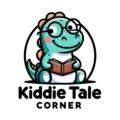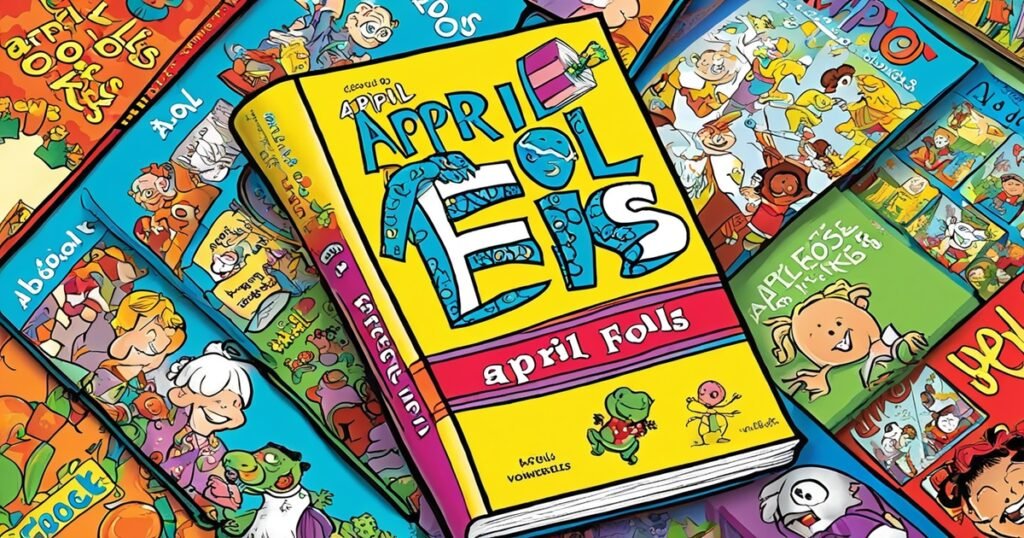As our children transition into their teenage years, families experience a dynamic shift in interaction and understanding. Renowned clinical psychologist, Dr. Lucy Russell, emphasizes the importance of equipping parents with essential tools and insights to navigate this pivotal period. Dr. Russell identifies parenting teens books as one of the significant resources that not only prepare parents for these changes but also empower them in the face of the complexities associated with modern adolescence.
Considering the abundance of parenting advice saturating the market, pinpointing which resources offer practical, beneficial, and relevant advice can be challenging. Hence, Dr. Russell has stepped in to help, curating a comprehensive list of top books penned by mental health professionals and academics. These authors leverage their extensive knowledge about the teenage brain, relationships, and mental health to provide parents with guidance on raising teenagers.
Table of Contents
- Key Takeaways
- Understanding the Adolescent Mind: A Gateway to Effective Parenting
- Navigating Modern Teen Challenges: Social Media and Mental Health
- Parenting Teens Books: In-Depth Guide to Teenage Development
- Female Adolescent Growth: Empowering Parents of Teen Girls
- Enhancing Communication: Conversing Effectively with Your Teen
- Transformative Parenting: Learning from Past Generations
- Finding the Balance: Teen Independence vs. Parental Guidance
- Redefining Masculinity: Parenting Teenage Boys in the 21st Century
- Nutrition and Mental Health: Educating Teens for Better Wellbeing
- Source Links
Key Takeaways
- Adolescence brings a dynamic shift in family interaction and understanding.
- Parenting teens books are excellent resources for parental guidance and preparation.
- Books authored by mental health professionals and academics offer most comprehensive guidance for parents.
- Understanding the teenage brain helps foster stronger parent-teen relationships.
- Parenting in the 21st century introduces unique challenges that require updated guidance.
- Dr. Lucy Russell offers a curated list of top parenting teens books as an effective resource for parents.
Understanding the Adolescent Mind: A Gateway to Effective Parenting
As parents strive to discover effective parenting strategies, understanding the adolescent mind is a crucial milestone in this journey. Decoding their behaviors and actions is a skill that, once honed, can open channels of communication between parents and their teenage children. Assisting parents in this process, there are several books on understanding teens that are both informative and practical.
‘Brainstorm: The Power and Purpose of The Teenage Brain’ by Dr. Daniel Siegel is one such invaluable resource, shedding light on the elusive mysteries of the teenage brain. The science behind making sense of the complex adolescent mind is presented in a comprehensive manner that caters to a wider audience.
The Science Behind Teenage Behaviors
Laced with scientific evidence, ‘Brainstorm’ provides parents with an insightful amalgamation of Dr. Siegel’s years of experience and significant research. It enhances our understanding of adolescent behaviors while giving valuable insights into factors that can influence these behaviors. By focusing on the development of teenage brain and its implications, it aids in the better management of teenage-related issues and concerns.
Featured Title: ‘Brainstorm’ by Dr. Daniel Siegel
Dr. Siegel’s book gives readers a comprehensive overview of the adolescent brain—mapping its development, changes, and main features. It offers critical information to help parents cultivate patience, build stronger relationships, and effectively engage with their teens.
“Understanding that the adolescent period is a time when the brain is growing and changing provides adults with a precious opportunity to influence how the brain’s architecture takes shape.” – Dr. Daniel Siegel
Enhancing Parent-Teen Relationships with Neuroscience
Both Dr. Siegel’s ‘Brainstorm’ and Sarah-Jayne Blakemore’s ‘Inventing Ourselves: The Secret Life of the Teenage Brain’ serve as excellent tools in improving parent-teen relationships. These books for parenting teens highlight the importance of neuroscience in understanding teenage conduct. They provide practical parenting tips for teenagers and are lauded for their effective guidance in fostering lasting ties.
| Book | Author | Scope |
|---|---|---|
| ‘Brainstorm: The Power and Purpose of The Teenage Brain’ | Dr. Daniel Siegel | Gives a holistic view of the teenage brain’s development and its effects on adolescent behaviors. |
| ‘Inventing Ourselves: The Secret Life of the Teenage Brain’ | Sarah-Jayne Blakemore | Offers insights into the neuroscientific aspects of adolescence pertaining to risk-taking, intense friendships and mental illnesses onset during teen years. |
Navigating Modern Teen Challenges: Social Media and Mental Health
Contemporary teenage challenges have considerably transformed from the conventional issues of past generations. The influences of the digital era have brought about unique dilemmas intertwined with the daily experience of teen life. Transformative devices such as smartphones, and platforms such as social media, have risen as both connectors and disruptors in the lives of adolescents.

Anxiety, depression, loneliness, and suicide—these are some of the slippery ills affecting a significant percentage of the modern teenage population. At the forefront of these issues is the pervasive influence of social media. Dr. Mary Pipher, in the anniversary edition of her profound work—“Reviving Ophelia”—explores these modern afflictions in depth.
The book probes into the world of adolescents, deciphering the code of complicated emotions that are largely influenced and amplified by social media interactions.
- Importantly, Dr. Pipher acknowledges the necessity for updated guidance that resonates with the evolving experiences of today’s teens.
- She presents fresh insights, enhanced with new interviews.
- A dedicated chapter on anxiety is a notable addition to the book.
| Modern Teen Challenges | Effect on Adolescents | Key Source of Influence |
|---|---|---|
| Anxiety | Difficulty in focus, restlessness, irritability | Social Media bullying, identity issues |
| Depression | Persistent sadness, loss of interest in activities | Comparison trap on social media |
| Loneliness | Feeling isolated, loss of self-esteem | Lack of real-life interaction, digital friend circles |
| Suicide | Severe depression, hopelessness | Cyberbullying, online harassment |
In conclusion, “Reviving Ophelia” serves as a brilliant resource for parents navigating the teenage years, offering helpful parental guidance in understanding and addressing the new-age challenges faced by their adolescent children. The book prompts important discussions that need to be had in this digital era, stressing the role parents play in guiding their teens amid the unprecedented impacts of social media on mental health.
Parenting Teens Books: In-Depth Guide to Teenage Development
One of the most enlightening parenting teens books that focuses on understanding adolescent behaviors is the multi-award-winning “Inventing Ourselves: The Secret Life of the Teenage Brain” by Sarah-Jayne Blakemore.
Insights from ‘Inventing Ourselves’ by Sarah-Jayne Blakemore
This remarkable resource embarks on a groundbreaking exploration of the adolescent brain, providing parents with essential insights into the world of their teenagers. By examining the very foundation of teenage behaviors, the book provides an unparalleled understanding of why teenagers act the way they do. It demystifies complex neurological research into accessible, easily understandable information—a crucial asset when it comes to raising teenage children.
Risk-Taking and Friendship in Adolescence
Blakemore’s research highlights two primary behaviors that define adolescence – risk-taking and the nurturing of intense friendships. Comprehending the biological and environmental factors that influence these behaviors is key to developing effective parenting strategies.
“Teenagers are not, as often alleged, illogical or dramatic. Their actions are guided by the developmental processes taking place in the brain.”
Understanding these processes can help parents navigate the occasionally stormy seas of adolescence, mitigating conflicts and fostering understanding.
When it comes to parenting teens, acquiring a basic understanding of adolescent brain development and behavior is as crucial as setting boundaries and expectations. Fostering communication based on knowledge and empathy can help pave the way to a more harmonious parent-child relationship during these transformative years.
| Sarah-Jayne Blakemore’s Key Insights |
|---|
| Teenagers’ actions are influenced by the developmental processes happening in their brains. |
| Risk-taking behavior is normal for teenagers and can be linked to brain development. |
| Strong friendships are crucial in adolescence and influence a teenager’s identity. |
| Bridging the gap between teenage behavior and neuroscience can foster understanding and aid effective parenting. |
In the journey of raising teenagers, Sarah-Jayne Blakemore’s “Inventing Ourselves” stands out as a comprehensive guide for parents. It’s no surprise that it’s considered one of the most instrumental parenting teens books available today.
Female Adolescent Growth: Empowering Parents of Teen Girls
In the quest for empowering teen girls, parents need sound guidance and resources to navigate the unique challenges that the teenage years present. A very practical source traditionally has been genuine books written by professionals who have spent years studying and understanding adolescent behaviors. It’s these books that provide an illuminating perspective of the world through a teenage girl’s lens, thus providing practical advice for parents.

Clinical psychologist Lisa Damour’s book, “Untangled: Guiding Teenage Girls Through the Seven Transitions into Adulthood,” is indeed a noteworthy resource. This book is particularly insightful in delineating the labyrinth of female adolescent growth. From breaking down the seven key transitions that teenage girls go through to offering invaluable parenting tips for teenagers, this book becomes an essential guide for any parent raising a teenage daughter.
The book is structured around these seven main transitions:
| Transition | Description |
|---|---|
| Parting with Childhood | Entry into adolescence and the inevitable changes that accompany it. |
| Joining a New Tribe | Transition from dependence on family to finding identity in peer groups. |
| Harnessing Emotions | Managing the emotional roller coaster of teenage years. |
| Contending with Adult Authority | Dealing with conflicting relationship dynamics with adults in authority. |
| Planning for the Future | Decision-making around career and life planning. |
| Entering the Romantic World | Navigating the emotional and physical intricacies of romantic relationships. |
| Caring for Herself | Personal self-care and responsibility, including mental and physical health. |
With each chapter, Damour imparts her wisdom, not just theorizing the issue but offering actionable advice and scenarios that make the book a useful tool for real-life application. Particularly interesting is the “when to worry” segment that guides parents in identifying and addressing potential concerns, a potent tool when it comes to addressing signs of distress during adolescence for proactive care.
In the modern world, where parenting teenagers is anything but simple, books on parenting a teenage daughter like Damour’s offer a lifeline. They offer a sensitive, respectful, and inspiring approach toward empowering teen girls to build resilience, a sense of self, and overall well-being.
Enhancing Communication: Conversing Effectively with Your Teen
Open, honest, and expressive communication forms the heart of a thriving relationship between parents and their adolescents. Such connection fosters understanding, encourages co-operation, and reduces instances of power struggles and escalated arguments. As such, our examination of useful guides for parenting teens continues with a particular focus on refining communication techniques with adolescents.
Nurturing Co-operation and Understanding
Establishing a dialogue that transcends the typical parent-teen power struggles involves fostering an environment where everyone feels heard, valued, and respected. It’s about talking less and listening more, distancing yourself from lectures that close off conversation and instead, facilitating open and empathetic discussions. By creating nurturing conditions for co-operation and understanding, you lay the groundwork for meaningful connections and deepen your bonds with your adolescent child.
‘How to Talk so Teens will Listen & Listen so Teens will Talk’
Adele Faber’s book “How to Talk so Teens will Listen & Listen so Teens will Talk” provides critical strategies for achieving this communicative balance. Known for her insightful narratives and valuable advice, Faber offers real-life situations and innovative, practical solutions geared towards enhancing communication with teens. What sets this guide apart is its concentration on not only what parents should say, but how they should say it, thus ensuring a climate of mutual respect and facilitating productive conversations. Let’s delve deeper into the transformative ideas presented within this book:
| Key Concepts | Ideas for Implementation |
|---|---|
| Encourage autonomy to inspire co-operation | Include teens in decision-making processes, promote constructive dialogue, and engage them in resolving conflicts. |
| Avoid harmful lecturing and criticism | Engage in active listening, use open-ended questions, and provide feedback that encourages understanding. |
| Nurture an environment of respect and empathy | Model respect and empathy in your actions and words, acknowledge teen’s feelings and viewpoints, and remain transparent about your own emotions. |
Enhancing communication with your adolescent, while a challenging endeavor, is not impossible. Armed with tested strategies, patience, empathy, and commitment, parents can work towards nurturing relationships marked by understanding and co-operation.
Transformative Parenting: Learning from Past Generations
Parenting is not a one-size-fits-all model, as our diverse backgrounds and past experiences extensively shape our parenting choices. An insightful approach, known as transformative parenting, urges parents to delve into their past and examine how it possibly affects their parenting style. For many, this involves recognizing past mistakes and embracing opportunities to learn and grow from them, thereby improving their overall parenting conduct.

The Importance of Relationship Repair
One key tenet of transformative parenting is the importance attached to the process of relationship repair. In parenting, mistakes are not just inevitable—they are necessary for growth. The art lies in acknowledging these mistakes, taking genuine steps towards mending ruptures, and turning these very human moments of flaw into avenues for strengthened bonds and trust within the family.
Philippa Perry’s Insights on Parental Reflection
Insights into transformative parenting are beautifully captured in Philippa Perry’s revered book, “The Book You Wish Your Parents Had Read.” Perry, a renowned British psychotherapist, emphasizes the powerful influence of one’s past on their parenting style while advocating for active reflection and learning. Her transformative approach not only encourages parents to understand themselves better but also enlightens them to foster healthier and stronger relationships with their teens.
“We all carry the potential to be the best parent we can be, provided we dare to look within.” – Philippa Perry
Whether you are an experienced parent navigating the turbulent teenage phase or a newbie seeking effective parenting strategies, transformative parenting could provide insightful guidance to foster stronger bonds with your teen. After all, the best parenting teens books are those that offer a compassionate, comprehensive, and, most importantly, a human approach to raising a well-rounded teenager.
Finding the Balance: Teen Independence vs. Parental Guidance
Addressing the dynamic tussle between independence vs. parental guidance within the confines of a modern teenager’s life often requires a nuanced approach. The rapidly-changing landscape of teenage dynamics necessitates substantial recalibration in parenting techniques, particularly in the areas of fostering independence and illustration of acceptable boundaries.
The contemporary parenting dilemma often converges at two diverging paths – enabling independence and providing the correct dose of guidance. Striking this balance is crucial for raising teenage children who are both self-assured and mindful of their boundaries.
This delicate balance requires expert maneuvering around complex emotional terrains, such as managing anger, toning down frustration, and floating boundaries. Parenting teens requires a thoughtful approach that doesn’t lean excessively toward over-involvement or excessive liberality. Guidelines for such parenting practicesare covered in books like “Get Out of My Life… But First Take Me and Alex Into Town: The Bestselling Guide to the Twenty-First-Century Teenager” by Toby Wolf and Suzanne Franks. This book serves as a pointer to the ideal equilibrium desired in striking the balance, thus offering valuable parenting tips for teenagers.
Successfully navigating boundaries in teen life encapsulates not just impartation of knowledge but the development of critical life skills. It walks the tightrope, respecting teenage autonomy while ensuring they grow up with a solid moral compass and a clear understanding of their limitations. The balance lies somewhere amidst the give and take of independence, parental influence, trust, and life wisdom.
Redefining Masculinity: Parenting Teenage Boys in the 21st Century
Recognizing that the path to manhood has complexities is a vital step in guiding boys towards maturity. In an era where masculinity is continuously redefined, parents of teenage boys need access to practical advice and insights that echo the contemporary realities young males face.
One valuable resource, acclaimed for its in-depth exploration of modern boyhood, is ‘Masterminds & Wingmen’ by Rosalind Wiseman.
Strategies from ‘Masterminds & Wingmen’ by Rosalind Wiseman
Renowned author Rosalind Wiseman provides a lens into the reality of growing up male in the 21st century in her book ‘Masterminds & Wingmen.’ Covering insightful aspects of the adolescent male experience, from school life to home dynamics, and navigating self-identity in a hyperconnected world, Wiseman equips parents with practical strategies for raising their teenage sons.

Challenges of Masculine Identity in Today’s World
Often, teenage boys grapple with their masculine identity, challenged by societal expectations and changing norms. These struggles can include emotional expression, manifesting vulnerability, and redefining traditional gender roles.
| Challenges | Insights | Solutions |
|---|---|---|
| Emotional Expression | Many boys learn from a young age to suppress their emotions as part of the traditional masculine ideal. | Encourage open dialogue about emotions to normalize their expression. |
| Vulnerability | Admitting fear or weakness often conflicts with societal definitions of strength in males. | Teach boys that vulnerability is a strength, not a weakness. |
| Redefining Gender Roles | The shift away from traditional gender roles can cause uncertainties in forming a masculine identity. | Guide boys to embrace a broader, more flexible understanding of masculinity. |
In combating these issues, parents must engage in continuous, open conversations with their sons, creating a secure environment where boys can navigate their teenage years with confidence and authenticity.
Nutrition and Mental Health: Educating Teens for Better Wellbeing
In the dynamic landscape of teenage growth, the significance of nutrition and mental health is often underestimated. Tina Lond-Caulk, author of “Eat Well and Feel Great: The Teenager’s Guide to Nutrition and Health,” invites both teenagers and parents to explore the profound connection between diet and wellness.
The book serves as an essential compass for educating teens on nutrition’s impact on various aspects of their health, including hormonal balance and emotional wellbeing. It lucidly explains nutritional science in a manner accessible to teenagers, fostering an understanding that can catalyse lasting positive changes in dietary habits.
Lond-Caulk offers practical advice for parents, equipping them to guide their teenagers towards a healthier relationship with food. The text comes with an array of recipes designed specifically for teens, ensuring that healthier eating is not only insightful but also enjoyable.
This book strengthens the arsenal of effective parenting strategies, illuminating the power that balanced nutrition wields in the pursuit of teen mental health. By harnessing the insights provided, parents can aid their teenage children in their journey towards enriched physical and emotional wellbeing.
FAQ
What parenting books are recommended for understanding adolescent behavior?
Dr. Lucy Russell recommends “Brainstorm: The Power and Purpose of The Teenage Brain” by Dr. Daniel Siegel and “Inventing Ourselves: The Secret Life of the Teenage Brain” by Sarah-Jayne Blakemore as they provide practical insights and a neuroscientist’s perspective on adolescence.
Are there parenting books tailored towards raising teenage girls?
Yes, Lisa Damour’s “Untangled: Guiding Teenage Girls Through the Seven Transitions into Adulthood” focuses specifically on the unique challenges of raising teenage girls in today’s society.
How can parents improve their communication skills to connect better with their teenage children?
The book “How to Talk so Teens will Listen & Listen so Teens will Talk” by Adele Faber is an aimed resource for refining parents’ communication skills, promoting co-operation, and averting conflicts.
What are the challenges faced by teenage boys and how can parents navigate them?
“Masterminds & Wingmen” by Rosalind Wiseman delves into the intricacies of masculine identity and the specific issues faced by teenage boys, offering practical strategies for parents.
How does a parent’s past influence their parenting style and approach?
Philippa Perry’s book, “The Book You Wish Your Parents Had Read,” provides insights on how one’s past can deeply influence their parenting style, stressing on the reparative work required to better parent-child relationships.
Are there any books that talk about the balance between independence in teenagers and parental guidance?
“Get Out of My Life… But First Take Me and Alex Into Town: The Bestselling Guide to the Twenty-First-Century Teenager” by Toby Wolf and Suzanne Franks discusses managing issues like anger, frustration and setting boundaries in a thoughtful approach.
Is there any specific guide on nutrition and mental health for teenagers?
Tina Lond-Caulk’s “Eat Well and Feel Great: The Teenager’s Guide to Nutrition and Health” emphasizes the link between nutrition and mental health, providing recipes for teens to enhance their physical and mental health.



